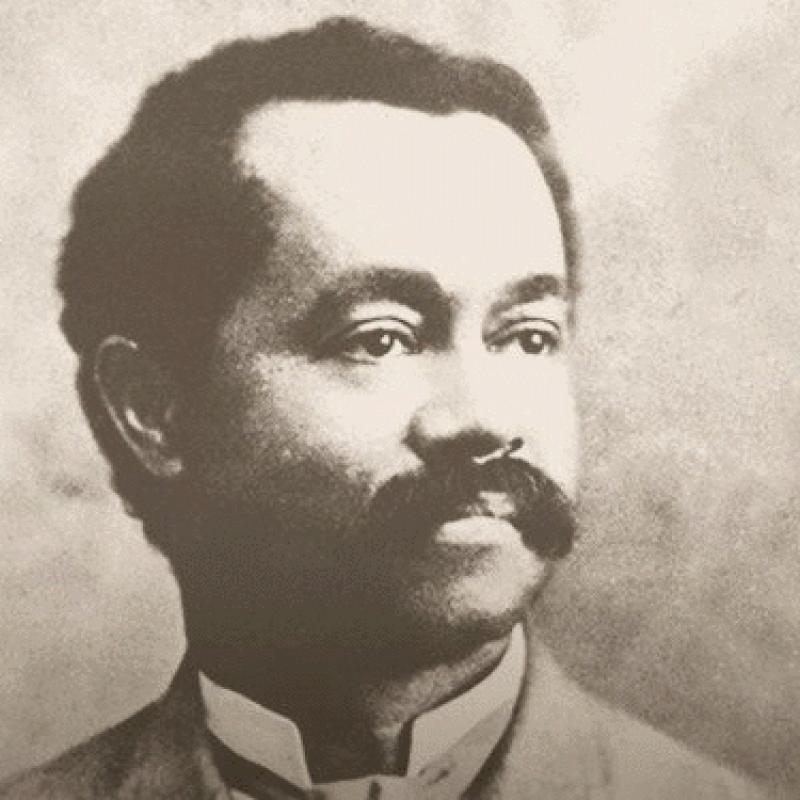A Black Biologist Pioneered Animal Intelligence Research, but His Work Was Buried
By: George Dvorsky


Black biologist Charles Henry Turner was doing groundbreaking research into animal cognition at the turn of the 20th century, yet his ideas never gained traction on account of racism and his seemingly radical viewpoint.
Many concepts proposed by Turner are now accepted science, and a group of researchers to say it's long past time to give credit where it's due—and to avoid the mistakes of the past.
It's sad... the number of scientists who made significant contributions,
but who were denied recognition because of race or sex.
BIDEN 2020


Charles Henry Turner
Wikimedia Commons
Turner's work went against the prevailing scientific discourse of the time, as he explored and entertained the idea that many animal species were capable of complex behaviors involving intelligence, problem solving, and even conscious awareness. Today, we take many of these ideas for granted, but Turner's research into these matters never got the recognition it deserved.
"It is deplorable that the now-popular field of 'animal personality' has taken so little notice of Turner's trailblazing approach," they write.
For Turner's contemporaries, it was a combination of racism and skepticism of his seemingly outlandish theories. His "visionary ideas about animal intelligence did not resonate in the field," the authors write, "perhaps they were simply too far ahead of the time," adding that they're "almost completely unrecognized in the current literature."
A deeper dive into Turner's work reveals some truly groundbreaking insights and approaches. Born in Cincinnati in 1867—just two years after the end of the U.S. Civil War—Turner, who earned his Ph.D. in 1907 while at the University of Chicago, devised some innovative experimental approaches to studying animal behavior and cognition. In the decades prior, biologists Charles Darwin and George Wallace discussed animal intelligence, but their work was based predominantly on field observations and inference. Turner, in addition to observing animals in the wild, devised controlled experiments with animals not unlike those commonly done today.
From 1891 to 1917, Turner published over 70 papers (!), including three that appeared in the journal Science. He studied the learning curves of ants, did a comparative anatomy of bird brains (finding similarities with the brains of reptiles), studied honeybee vision, showed that insects (namely silkworm moths) can hear, studied the hunting habits of sand wasps, did maze experiments with cockroaches (in which he claimed the bugs acted with "will"), and documented detouring behavior in wild snakes (he once saw a snake catch a lizard by climbing up a neighboring tree so that it could pounce on its prey from above). He also studied individual variation and intelligence in spiders, as the authors explain:
Contrary to the still-popular view that spider web construction is a prime example of invertebrates' robotic, repetitive action patterns, Turner reported variation between individuals in adapting their construction to the geometry of available space and the functionality in capturing prey: "we may safely conclude that an instinctive impulse prompts gallery spiders to weave gallery webs, but the details of the construction are the products of intelligent action."
Turner's observations and experiments led him to propose theories about the intentional behaviors of animal, arguing that they are intelligent, conscious beings. Some of these ideas wouldn't be re-explored for another century, including the suggestion of free will among insects—an idea not revisited until only recently. Indeed, his were highly unconventional ideas; it wasn't until 2012, for example, that a consortium of scientists signed the Cambridge Declaration on Consciousness, in which they admitted that all animals have conscious awareness to some degree.
In Turner's era, the traditional approach saw animals as creatures driven almost exclusively by instinct and held that any apparent intelligence could be explained by sheer persistence, among other processes, as the authors describe:
Early ethologists such as Oskar Heinroth, Charles Whitman, and Wallace Craig focused instead on innate behavior and imprinting, a simple form of learning. Where problem-solving was observed, such as when animals open puzzle boxes, behaviorists such as Edward Thorndike proposed that this materialized as a result of trial and error, not insight or understanding of the nature of the challenge. None of these scientists were interested in individual variation of behavior.
Turner, in addition to not receiving the recognition or respect of his peers, was denied a position at the University of Chicago. This snubbing was due to racism, the authors contend (Turner became a high school teacher after earning his Ph.D.) This limited his access to resources that could've pushed his research to the next level, such as lab equipment, texts, and research assistants; the lack of the latter prevented his ideas from trickling down to the next generation of biologists. As the authors point out by comparison, Russian scientist Ivan Pavlov (1849-1936), famous for his salivating dogs, trained more than 140 colleagues.
The authors "cannot help but wonder what Turner might have achieved if he had had comparable resources and manpower" as the "entire field of animal cognition may have developed differently." To which they added: "One would hope that nowadays, a person of Turner's caliber might not face similar adversity in terms of academic employment opportunities or long-term recognition of their contribution to science" but even today "very few scholars in animal cognition, or indeed across biology, are Black."
Turned died at the age of 56 from a heart condition, but not before he made contributions to the U.S. civil rights movement, fighting for social and educational services among Black people living in St. Louis, Missouri, where he made his home.
Turner's story is as intriguing as it is frustrating, a sad reminder of the immense contributions made by people who, over the course of history, have had to endure hardships imposed by systematic discrimination.











Kudos to Mr. Turner, sadly very late.
There are similar stories every day.
At least historians remember.